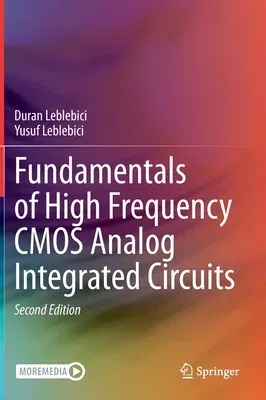This textbook is ideal for senior undergraduate and graduate courses in
RF CMOS circuits, RF circuit design, and high-frequency analog circuit
design. It is aimed at electronics engineering students and IC design
engineers in the field, wishing to gain a deeper understanding of
circuit fundamentals, and to go beyond the widely-used automated design
procedures. The authors employ a design-centric approach, in order to
bridge the gap between fundamental analog electronic circuits textbooks
and more advanced RF IC design texts. The structure and operation of the
building blocks of high-frequency ICs are introduced in a systematic
manner, with an emphasis on transistor-level operation, the influence of
device characteristics and parasitic effects, and input-output behavior
in the time and frequency domains.
This second edition has been revised extensively, to expand some of the
key topics, to clarify the explanations, and to provide extensive design
examples and problems. New material has been added for basic coverage of
core topics, such as wide-band LNAs, noise feedback concept and noise
cancellation, inductive-compensated band widening techniques for
flat-gain or flat-delay characteristics, and basic communication system
concepts that exploit the convergence and co-existence of Analog and
Digital building blocks in RF systems. A new chapter (Chapter 5) has
been added on Noise and Linearity, addressing key topics in a
comprehensive manner. All of the other chapters have also been revised
and largely re-written, with the addition of numerous, solved design
examples and exercise problems.

